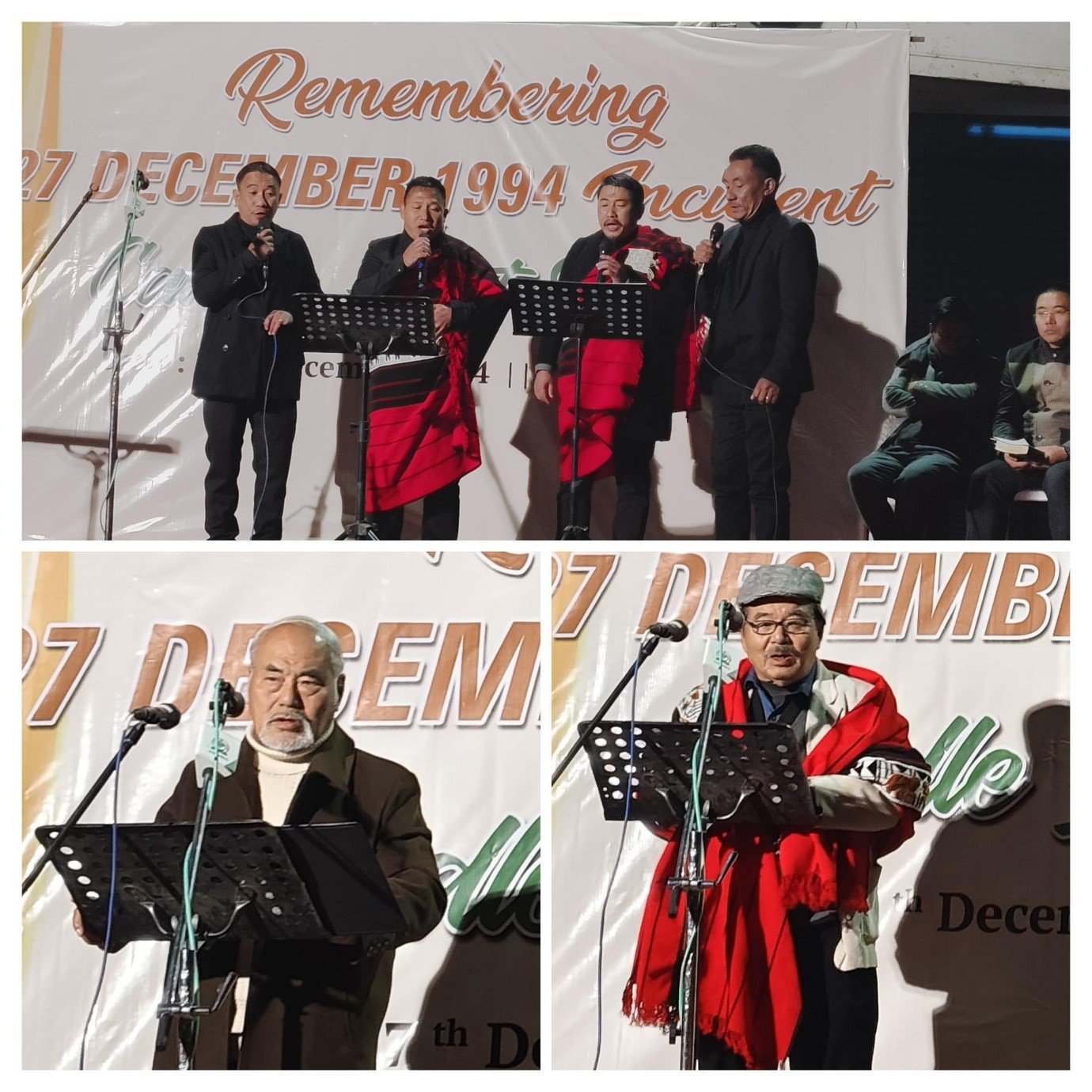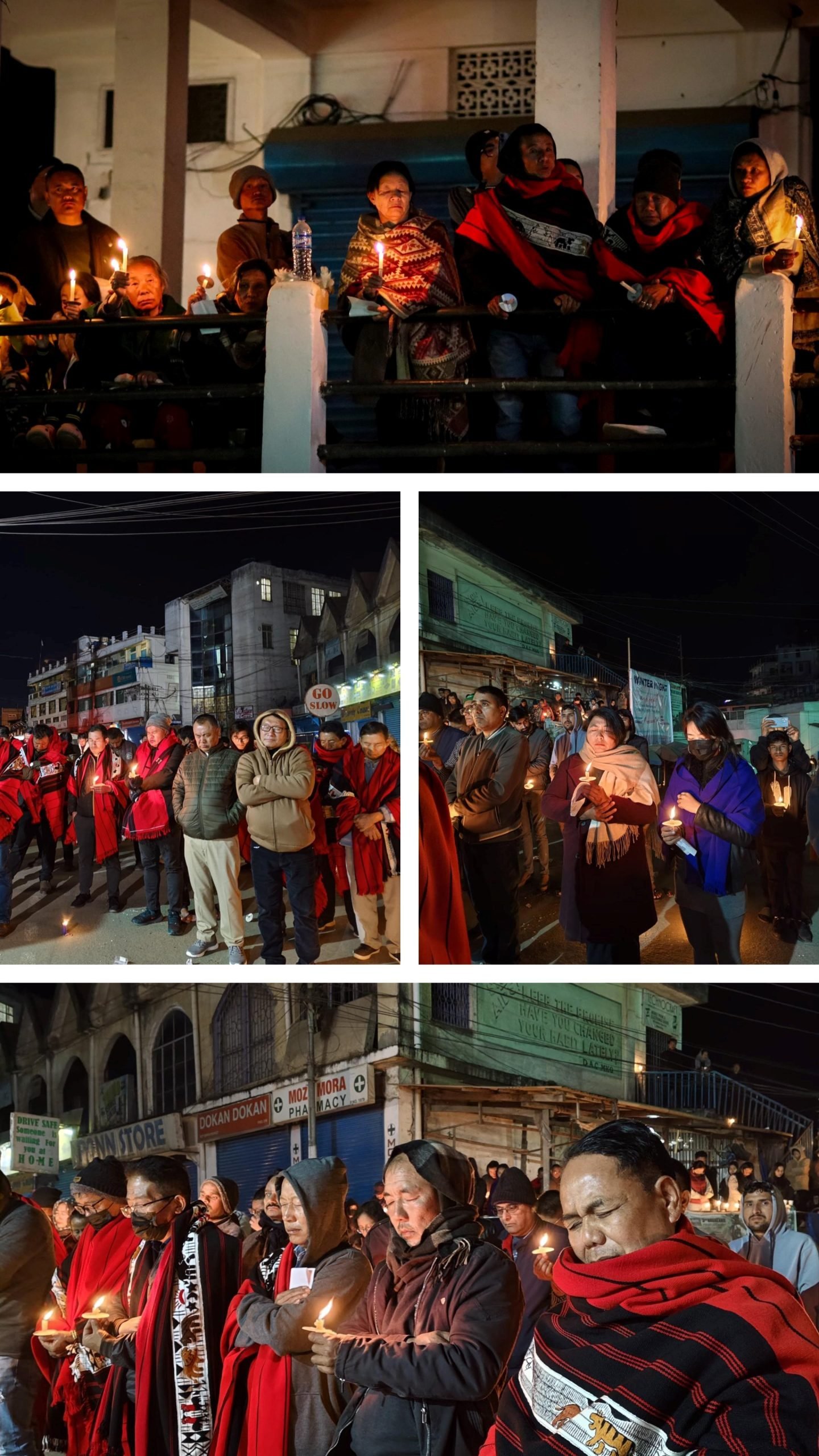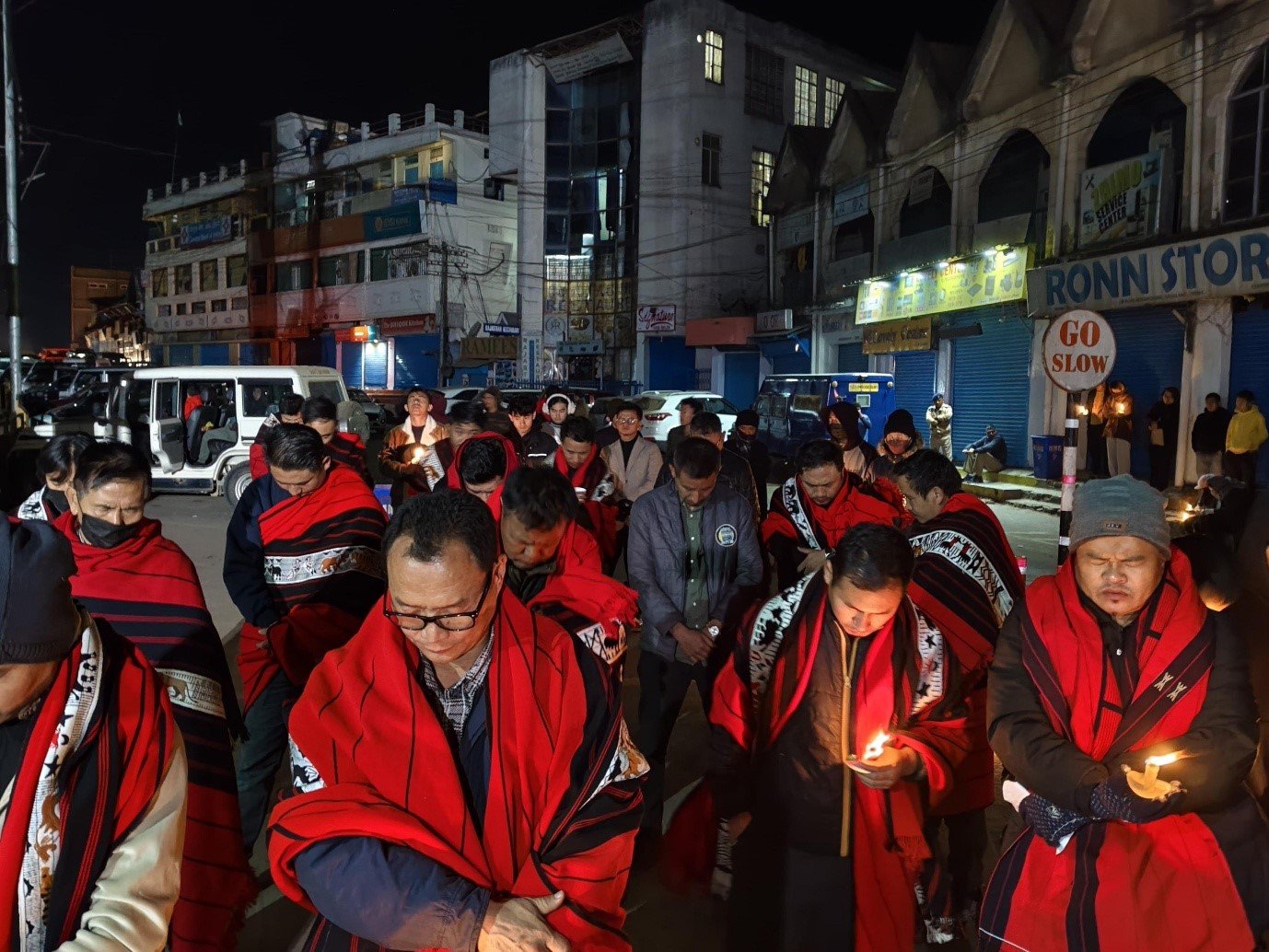On December 27, 2024, the citizens of Mokokchung gathered at the Main Police Point for a candlelight vigil to mark the 30th anniversary of the 1994 tragedy known locally as “Ayatai Mokokchung.” The solemn event was organized collectively by the community to honor the memory of those who lost their lives and endured immense suffering during the incident.


The tragedy of December 27, 1994, occurred when personnel from the 10th Assam Rifles and the 16th Maratha Light Infantry of the Indian Army conducted a retaliatory operation in Mokokchung. The operation, launched in response to an alleged ambush, resulted in significant civilian casualties, destruction of property, and widespread trauma.
According to records and testimonies, the 1994 operation resulted in the loss of innocent lives, including five people burned alive, two civilians shot dead, and eight women subjected to sexual violence. Residential areas were bombarded with mortar shells and grenades, and homes, shops, and vehicles were set ablaze. The aftermath left 84 houses, 89 shops, and 24 vehicles destroyed.
Eyewitnesses described how soldiers entered homes, looted valuables, and forced civilians to crawl on the streets. Survivors recounted the horror of being herded together, humiliated, and tortured.

Lanukaba Imchen, a survivor, shared his harrowing experience during the vigil. He described how civilians fled in all directions as the Army began firing. Shops were shuttered, people were captured, and women courageously came forward to testify about the atrocities committed against them.
A statement issued by the Naga Students’ Union Delhi (NSUD) and the Naga People’s Movement for Human Rights (NPMHR) in 1995 accused the government and national media of attempting to whitewash the incident. The Army’s report attributed the destruction to a series of LPG cylinder explosions, a claim dismissed by local witnesses and rights organizations.

Download Nagaland Tribune app on Google Play

The NSUD and NPMHR statement described the event as one of the darkest days in Indian democracy. They alleged that the Army’s actions violated international norms, including the Geneva Conventions.

Efforts for justice began soon after the tragedy. In 1995, MB Longkumer was appointed by Ao Senden to approach the National Human Rights Commission (NHRC). With support from NSUD, NPMHR, and other organizations, a public rally was organized in New Delhi, garnering the participation of over 35 groups.
The NHRC responded by sending an investigation team to Mokokchung and recommending ex-gratia compensation for the victims. However, survivors and activists lament that justice remains elusive, with many questions surrounding the incident still unanswered.

During the candlelight vigil, prayers were offered, and a minute of silence was observed for the victims. A Song of reflections of the tragedy “Ayatai” was performed by Lenjeter.

Aowati Ozükum, Vice President of Ao Senden, led the event, while pastors Kikum Longkumer and Matsüng Longkumer offered prayers. The absence of the Ayatai monument, once a symbol of collective memory, was lamented by many, with calls for its restoration to honor the victims and preserve history.

